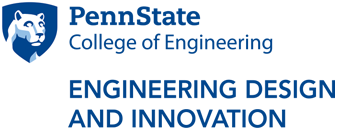Academy of Business Research honors two Wilkes-Barre faculty
10/09/17
When they set out to co-author a paper together, Associate Teaching Professor of Engineering Robert Faux and Assistant Teaching Professor of Business John Weber were simply searching for a solution to two real problems.
“How can you delivery content heavy material, like math, business or engineering, to an audience that may not be prepared to understand the intricacies of the material if delivered at the speed of a lecture format or in a truncated format as presented textbooks? And then, how can you create a closed-loop learning environment and give learners asynchronous access to course materials, lectures and assessments?” explained Faux. “In general, giving students searchable access to course materials in a variety of mediums, assessments with feedback, and real time access to materials and near real time access within reason to the instructor make pedagogical sense. As professors duplicated themselves digitally, they will then be free of some of the rote workload and dedicate that time to more meaningful interactions.”
“It was just about a year ago that one of the campus senate standing committees had a lunch session with all faculty to discuss collaborative research,” said Weber, elaborating on the process. “I happened to be sitting across the table from Bob and we began to discuss our research interests. We both had an interest in courses delivered both online and as a hybrid (mix of face-to-face and online). We discussed various paper topics and agreed to research online learning environments that would benefit today's college learner, specifically Generation Z students.”
The original paper was presented in March at the Academy of Business Research Spring International Conference. The Academy of Business Research (ABR) is an international society of scholars and practitioners who exchange ideas and collaborate in a conference setting. In the last decade, ABR has had participants from all 50 states and 49 different countries.
After receiving valuable feedback in the spring, Faux and Weber updated the paper. The updated paper was presented, by Weber, at the ABR Fall International Conference in September where it was awarded Best Paper.
“Our hope, moving forward, is that online learning courses will look and feel more like quality in-person courses than correspondence courses or prefabbed publisher provided courses,” said Faux.
Weber agreed, “The research showed us that much of what an educator does to prepare for a face-to-face course is no different than for a course delivered using an alternative delivery method, i.e. online or hybrid. The key is to develop course content that will help students learn.”
Faux and Weber are both looking to how their research will affect students in the future, as the technology shifts to a primarily digital classroom.
“Our experience with students moving to online learning is that they love it right up until the material gets difficult. They then regret not having a teacher present to provide insights and identify their individual misunderstandings. John and I are looking for ways to duplicate ourselves and time-tested methodologies in the digital teaching space. The insight that we get comes from student feedback, in the form of their success with the materials and their satisfaction with the modality of the delivery method,” explained Faux.


